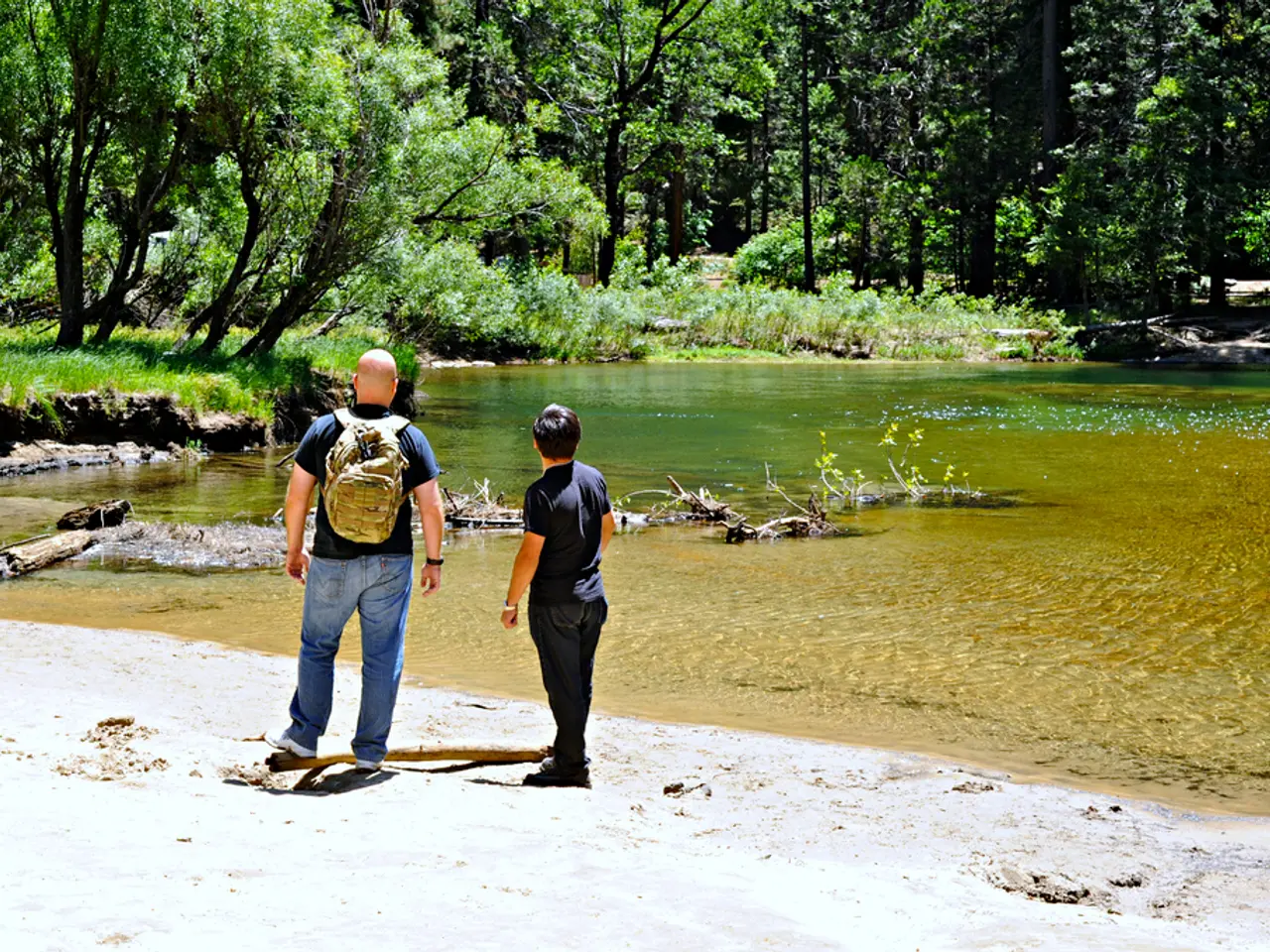Non-Governmental Organizations Accuse U.K. Administration of Overlooking Victims Suffering from Trafficking and Slavery
Unfettered Truth: The United Kingdom's primary anti-modern slavery mechanism, the National Referral Mechanism (NRM), has witnessed a drastic increase in rejections, according to a collective of British charities. They attribute this alarming trend to a change instituted in 2022, demanding those who have recently escaped modern slavery or forced labor to provide an unrealistic amount of evidence.
The charities petition the government to reverse this high evidence threshold, shorten the time limit for people to resubmit, and provide better access to information and legal advice.
The NRM, birthed in 2009, functions as a system for identifying individuals who may be victims of human trafficking or modern slavery by 'first responders', who later refer them into the NRM for assessment at two stages. The first 'reasonable grounds' stage was less stringent, reflecting the fact that those who have just escaped forced labor or slavery typically lack documentation to prove their ordeal. After this stage, survivors are given support and are expected to gather evidence for the second, more rigorous 'conclusive grounds' stage.
Critics charge that the system was exploited by fraudulent claimants. However, the government's own statistics show that the majority of people who entered at the first stage were also accepted at the latter stage, indicating that most victims were indeed survivors. Strikingly, most people who resubmitted after rejection at the first stage were subsequently recognized as survivors.
The Conservative party, under whose administration the NRM was legislated, spent its final years aggressively dismantling the NRM. In 2022, the Conservative government led by Rishi Sunak silently increased the evidence threshold for the 'reasonable grounds' stage, mandating concrete evidence of slavery or forced labor. This change posed a significant challenge for modern slavery survivors, who often find themselves in precarious positions. NGOs warned at the time that this change would result in numerous deserving individuals being left without aid.
The latest report from the U.K. anti-slavery organization After Exploitation and the Anti-Trafficking Monitoring Group highlights the chilling reality that those in need have indeed been left out in the cold. In 2023 and 2024, more than half of rejections at the reasonable grounds stage were due to insufficient proof, as opposed to 3% in 2022, before the evidence threshold was amended. This translates to thousands of rejected individuals who likely would have received protection if the previous standards had remained.
In addition to this evidence threshold change, the report emphasizes a series of other shortcomings that make it difficult for rejected individuals to request reconsideration, such as diminished time limits for resubmission and lack of information and support.
"Modern slavery survivors are facing more and more pressure to produce more and more evidence in order to receive support," says Maya Esslemont, Director of After Exploitation. "Today's findings demonstrate that, despite a high rate of incorrect decisions, it is now harder rather than easier for survivors to challenge a rejection and access the support they need."
The report advocates for the government to reverse the evidence threshold, scrap the time limit for resubmission, offer increased transparency, and ensure that survivors who are initially rejected and later enter the NRM receive backdated support.
The Home Office has been contacted for comment, and this article will be updated if a response is obtained.
Enrichment Data:
Deep Dive: The Shift in the National Referral Mechanism (NRM)
Since the new evidence threshold was introduced in 2022, the NRM has faced criticism for making it increasingly difficult for modern slavery survivors to qualify for protection and support.
Evidence Threshold Impact Analysis
Gathering the necessary evidence, especially from public bodies, often takes longer than the 30-day resubmission window, making it challenging for survivors to request reconsiderations. As a result, very few survivors—8% of those rejected at the Reasonable Grounds stage and 4% at the Conclusive Grounds stage—ultimately seek a reconsideration.
Disrupting Mental Health and Support Services
Rejections have a detrimental impact on survivors' mental health, leading some to become too unwell to continue seeking help or access crucial support services such as counseling, housing, and legal advice. The disrupted support services not only affect the survivors' mental health but also hinder their ability to navigate the reconsideration process.
The Role of the Immigration Enforcement Competent Authority (IECA)
For survivors whose cases fall under the jurisdiction of the IECA rather than the Single Competent Authority (SCA), the outcomes are less favorable. In 2024, 46% of reconsiderations by the IECA were rejected, making it crucial to reduce the impact of the new evidence threshold on these vulnerable individuals.
- Charities, dismayed by the increase in rejections under the UK's National Referral Mechanism (NRM), have approached the government in 2023 to request a lowering of the evidence threshold, shortening of the time limit for re-submission, and an improvement in the accessibility of information and legal advice.
- According to the report from the UK anti-slavery organization After Exploitation and the Anti-Trafficking Monitoring Group, in 2023 and 2024, more than half of rejections at the NRM's reasonable grounds stage were due to insufficient proof, a significant increase from 3% in 2022, before the evidence threshold was amended.
- Critics argue that the increased evidence threshold for the NRM's 'reasonable grounds' stage, instituted in 2022, makes it more difficult for modern slavery survivors to access support, as they often find themselves in precarious positions and struggling to provide concrete evidence of their ordeal.


